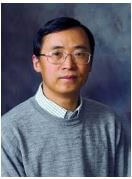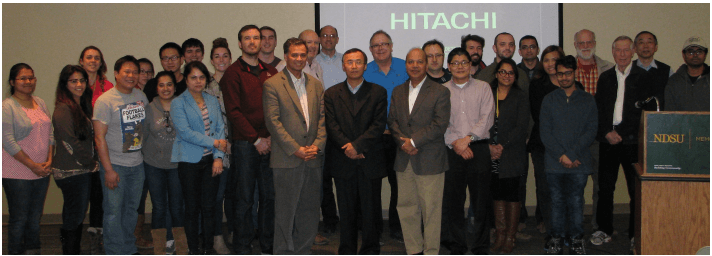6th Distinguished Water Seminar
Dr. Ximing Cai - Observations and Thoughts on Water Resources Research

The annual 6th Distinguished Water Seminar sponsored by the Institute was held on January 23, 2017. The featured speaker was Dr. Ximing Cai, Colonel Harry F. and Frankie M. Lovell Endowed Professor in the Department of Civil and Environmental Engineering at the University of Illinois at Urbana-Champaign. Dr. Cai is a renowned research leader in integrated hydrologic-economic modeling for river basin management and water systems operations. His current research areas include coupled human-natural system analysis with an emphasis of human interferences in hydrological processes, water-energy-food system modeling especially in dry areas, and sustainable water resources management particularly in developing countries. He has authored or co-authored over 130 peer reviewed journal papers, 3 books and several monographs. He currently serves as Editor for Water Resources Research (Am. Geophysical Union, AGU, the flagship journal of water resources) and Editorial Board of other major water journals. He has obtained several awards including U.S. National Science Foundation Career Award and Best Paper Awards with Water International and J. of Water Resources Planning and Management. He has worked as consultant to the World Bank, United Nations and other international agencies. Professor Cai teaches undergraduate and graduate courses in civil engineering systems and engineering economics, environmental and water resources systems analysis, water resources engineering, surface water hydrology, and river basin management. Before joining the faculty of the University of Illinois in 2003, Professor Cai served as a Research Fellow at the International Food Policy Research Institute in Washington, D.C. He holds a B.S. in Water Resources Engineering (1990) and an M.S. in Hydrology and Water Resources (1994) from Tsinghua University, Beijing, and a Ph.D. in Environmental and Water Resources Engineering (1999) from the University of Texas at Austin.
Abstract:
Water science has been shifting its focus over the past century to support water governance evolving from engineering development, demand management, water quality protection, and ecosystem restoration to building sustainable water systems. Meanwhile a gradual shift towards a holistic water management approach has already been evident in many countries and regions. The future of the world can be challenged by dramatic environmental change and increasing human population, which may stress the world's water resources at local to global scales and from single sector to multiple sectors (e.g., food-energy-water-environment nexus). In order to handle the complex and complicated water systems problems, technology innovation will be called upon to move us from segmented methods to seamless methods integrating all necessary components to solve real-world water problems, from physical to cyber-physical infrastructural support, and from human domination to human-nature harmony. Water has been playing a growing role to unify nature and humanity, and the target of water science in the 21st century must be ambitious to ensure that humans and our planet co-evolve sustainably. This talk will provide a historical review of water resources research and discuss the pressing research issues and directions for future studies, which call for a paradigm shift to deal with the challenges of sustainable water resources management.



